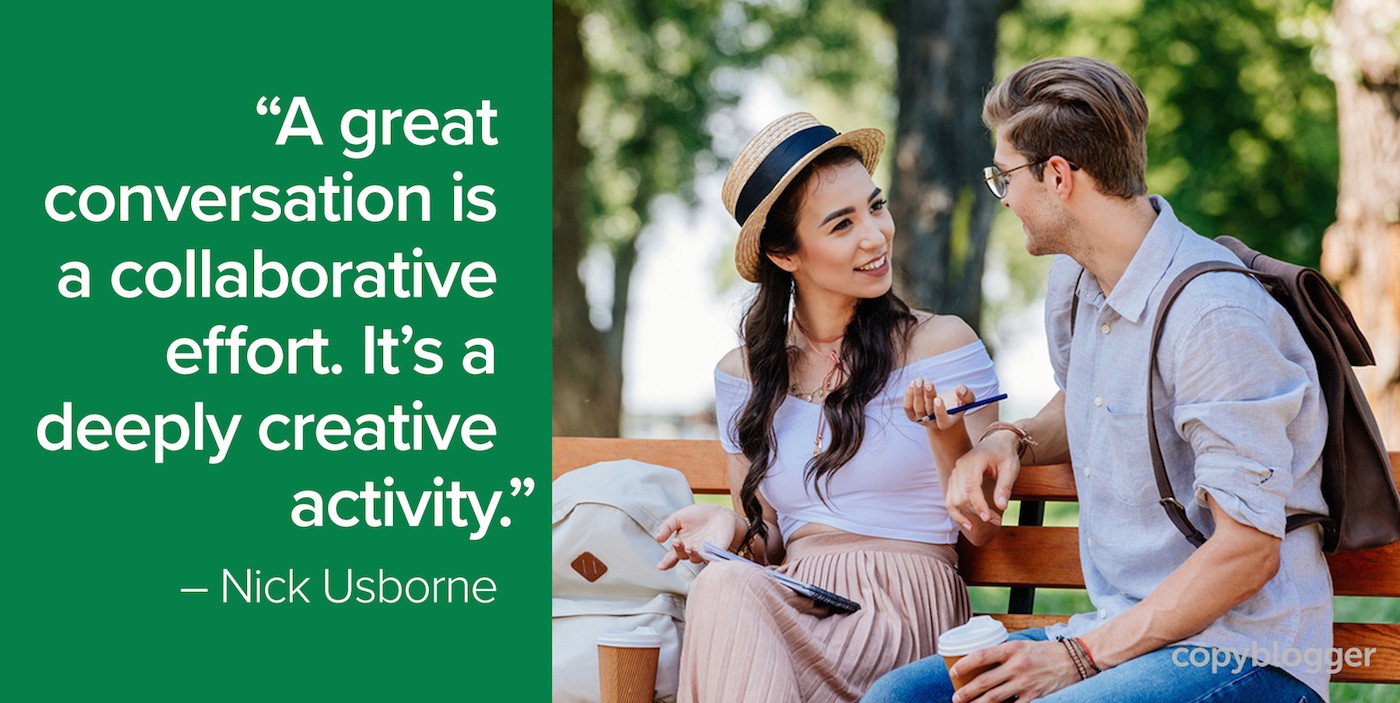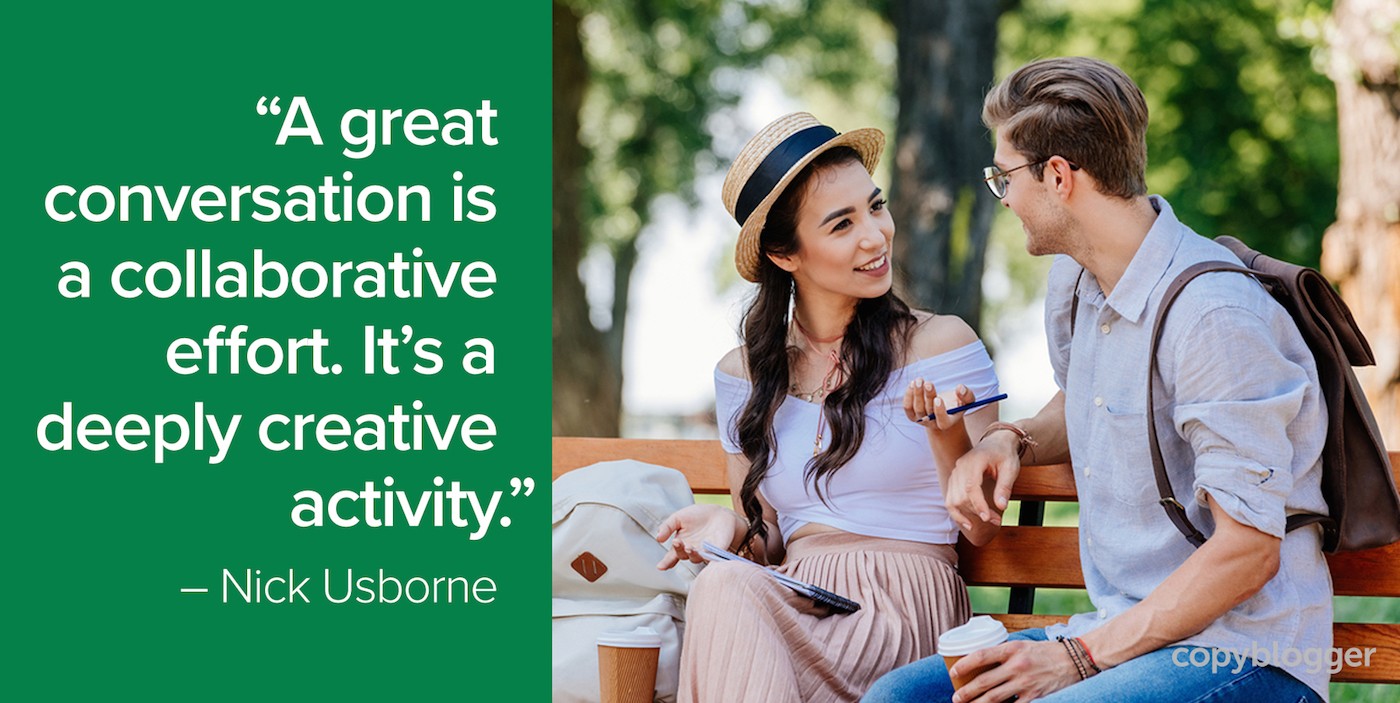But just occasionally, we’ll find ourselves taking part in a really, really good conversation. Lesson #1: Don’t assume the other person sees the world the same way you do When you’re part of a great conversation, you listen intently. But in a really good conversation, both people ask questions. You may not be in an actual conversation with your readers, but you can still send those positive signals by asking open-ended questions in your copy. As soon as the reader feels you’re only interested in pushing the sale, they’ll disengage and stop reading. Lesson #6: Express gratitude for what the conversation brings you Over the course of a good conversation, we’ll share signals of appreciation and gratitude. More explicitly, we’ll say “thank you,” or find some other way to tell the other person how much we value the conversation. And unless you’re talking about a highly technical subject, I bet you’d find that your language is surprisingly simple. But if you study a simple conversation, you’ll likely observe essential copywriting skills. Good conversationalists make great copywriters!

The easy part of this process is following the seven lessons below.
It’s much harder to find a good conversation.
The sad truth is, most of us are terrible at holding even a half-decent conversation.
We’re in too much of a hurry. We’re too anxious to get our own points of view across, and we tune out when the other person talks.
But just occasionally, we’ll find ourselves taking part in a really, really good conversation. We not only listen to the other person, but encourage them to dig deeper and develop their thoughts further. And they do the same for us.
A great conversation is a collaborative effort. It’s a deeply creative activity. It’s also incredibly bonding and rewarding for the people involved.
If and when you’re fortunate enough to have one of those conversations, there is a great deal you can learn from them … about copywriting.
Lesson #1: Don’t assume the other person sees the world the same way you do
When you’re part of a great conversation, you listen intently. It’s part of the experience.
You don’t just hear what you want to hear. You really get to understand the point of view of the other person, even if you don’t agree with it.
You need to do the same as a marketing writer.
Put aside your own beliefs and point of view for a moment. Listen carefully to your prospects and customers. And be aware that they may not share your own worldviews.
When you understand how they see the world, you’ll be in a better position to write to them in a way that truly connects.
Lesson #2: Ask open-ended questions
Bad conversationalists don’t ask questions. They just talk.
But in a really good conversation, both people ask questions. The best of them are open-ended questions.
Something like:
“Wow, I hadn’t thought of it that way. How might that work?”
This gives the other person space to explore their thoughts in more detail. It also signals that you care about their point of view and value their contributions.
You can do the same as a copywriter.
You may not be in an actual conversation with your readers, but you can still send those positive signals by asking open-ended questions in your copy.
For example:
“I’ve had terrible trouble trying to load apps on my Chromebook. How about you?”
I don’t ask the question with the expectation of a reply. But I’m still…

COMMENTS